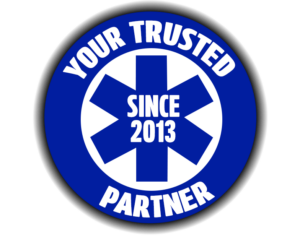
Biomedical Equipment Recalls: Understanding the Process and Implications
When it comes to the healthcare sector, the safety and efficacy of biomedical equipment are paramount. EMTs and first responders rely on this equipment daily. Understanding the process and implications of equipment recalls is crucial for healthcare professionals. This article discusses the process and implications of equipment recalls.
The Process
Equipment recall typically begins with the identification of a defect in medical equipment that could potentially harm patients or users. Manufacturers, upon discovering a fault, must promptly inform regulatory bodies, such as the FDA in the United States. Here are several key steps:
- Notification: The manufacturer must provide details about the problem, the equipment involved, and the risk it poses. They also need to communicate this information to their customers, which include hospitals, clinics, and sometimes directly to patients.
- Correction or Removal: Depending on the severity of the issue, the equipment may need to be corrected or completely removed from use. Corrections might involve repairing the equipment, adjusting software, or providing additional instructions to users. Removal, on the other hand, means the equipment is no longer deemed safe for use and must be returned to the manufacturer.
- Monitoring and Reporting: After initiating the recall, manufacturers must monitor the progress and report back to regulatory agencies. They need to ensure that the recall effectively mitigates any risks posed by the faulty equipment.
The Implications
The implications of biomedical equipment recalls can be wide-ranging, affecting not just the healthcare providers but also the patients they serve. For organizations like Coast Biomedical Equipment, understanding these implications is crucial to mitigating risks and ensuring that emergency medical technicians and first responders have the reliable equipment they need.
- Operational Disruptions: Recalls can lead to significant disruptions in medical services. Healthcare facilities may need to find immediate alternatives or adjust treatment protocols, which can delay care.
- Financial Impact: The cost of a recall can be substantial. Facilities must bear the expense of replacing or repairing equipment, not to mention the potential loss of revenue due to operational downtime.
- Trust and Reputation: Frequent or significant recalls can erode trust in a manufacturer’s reliability. For companies like Coast Biomedical Equipment, maintaining a strong reputation for quality and reliability is paramount.
- Patient Safety: Ultimately, the most significant impact is on patient safety. Faulty equipment can lead to misdiagnoses, delayed treatment, or even harm, underscoring the importance of prompt and effective recall processes.
Choose Coast Biomedical Equipment
By understanding the recall process and its implications, healthcare professionals can better navigate the challenges posed by equipment failures, ensuring that patient care remains their top priority. Choose Coast Biomedical Equipment for safe, effective care solutions.



